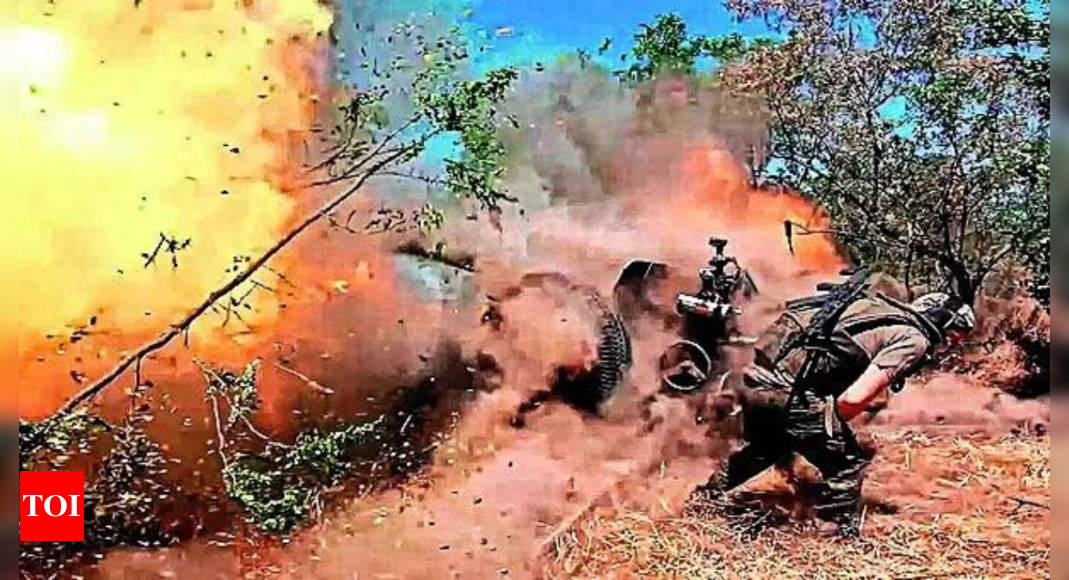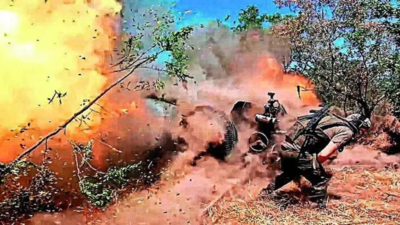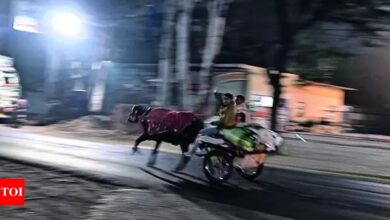India
‘We were made to work 15 hours a day and were fired if we failed’ | India News – Times of India



According to them, there are at least 60 Indian youth fallen prey to this employment fraudmany of whom are still languishing abroad. They were all shipped out of India in December 2023, with the promise of work as security personnel or helpers in Russia.
But life took a turn once they reached Russia. “We were treated like slaves,” Sufiyan of Narayanpet told TOI soon after landing in Hyderabad, just after noon on Friday.
The young man recalled his gruelling last few months. “We were woken up every day at 6am and made to work for 15 hours straight – without rest or sleep. The conditions were inhumane. We were given meagre rations. Our hands were blistered, our backs ached and our spirits were broken. But if we showed signs of exhaustion, bullets were fired at us to force us back to the hard tasks,” Sufiyan added, his voice trembling.
Their assignments were not small tasks. They had to dig trenches and shoot assault rifles. They were also trained to fire Kalashnikovs, such as the AK-12 and AK-74, along with hand grenades and other explosives.
But the biggest challenge was staying disconnected from the rest of the world. Sufiyan and his companions recalled how they never knew for sure where they were — or where they were being taken — and were not allowed to communicate with their families in India.
“Our mobile phones were confiscated. For months during training, I couldn’t talk to my family,” said Abdul Nayeem from Karnataka, fighting back tears.
The psychological toll of living in an alien war zone was immense for the men. Syed Ilias Hussaini, a resident of Kalaburagi in Karnataka, described the constant fear of being caught in the crossfire and the relentless pressure to perform under life-threatening conditions. “Every day we woke up not knowing if it would be our last. The sound of gunfire and explosions became a constant backdrop to our lives and we lived in constant fear,” Ilias said, his eyes moist.
The only way to cope, the men said, was to pray and imagine a day when they would set foot in India again and be reunited with their families. “We longed for the comfort of our families and the safety of our homes. The thought of never seeing them again haunted us every day,” Sufiyan said, hugging his brother Mohammad Salman, who was at the airport with his father, mother and others to receive him.
Seeing other “soldiers” drop dead only added to their trauma. “Hamil, a very close friend of mine from Gujarat, was blown to death in a drone strike. He was part of a team of 24 soldiers, including an Indian and a Nepali. It was a wake-up call for me,” recalled Sufiyan. He added, “It was only after Hamil’s death that we told our families about our plight, who then requested Union Minister of State for External Affairs S Jaishankar to rescue us from the war zone. I am happy to be alive to see this day.”




